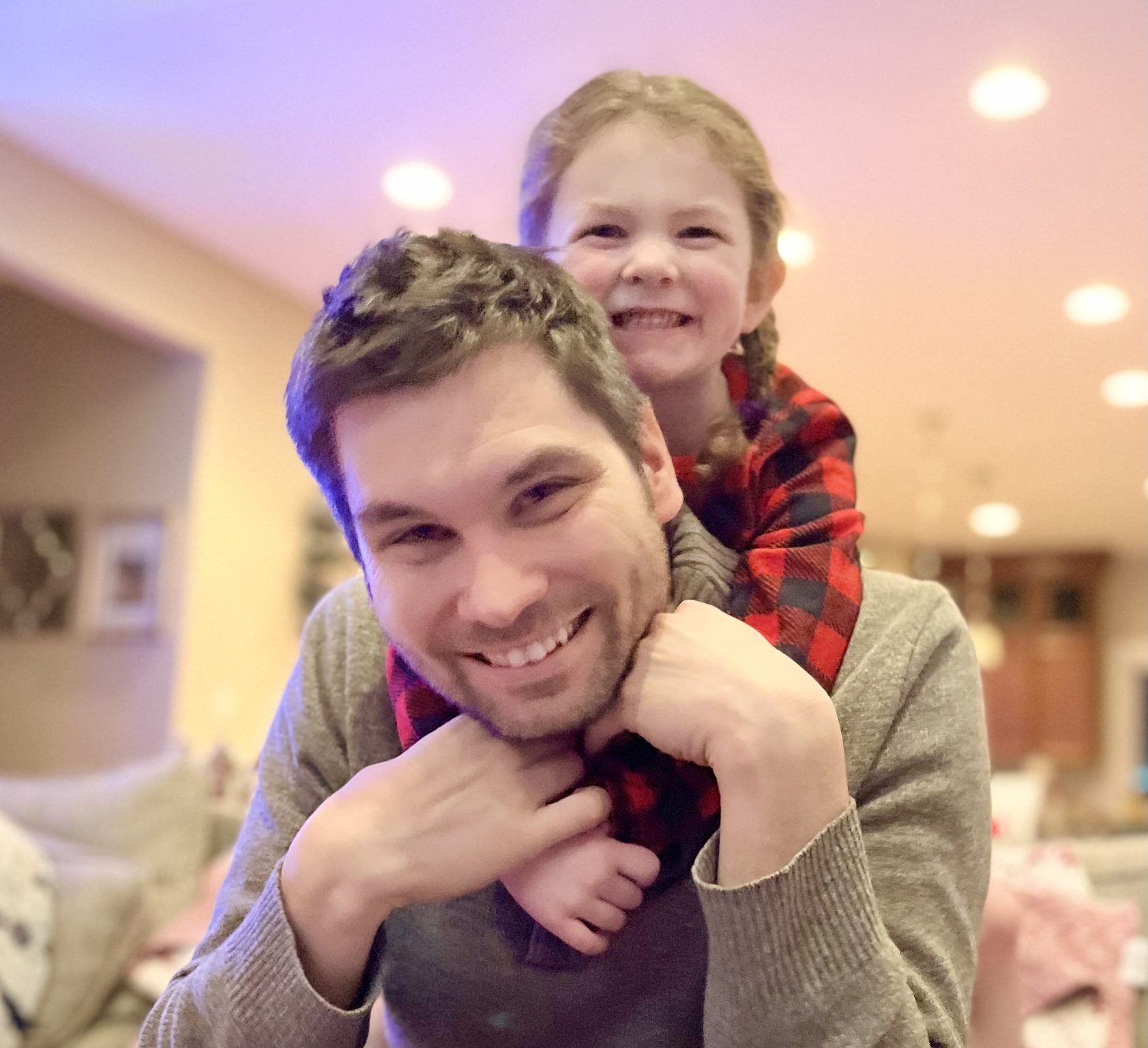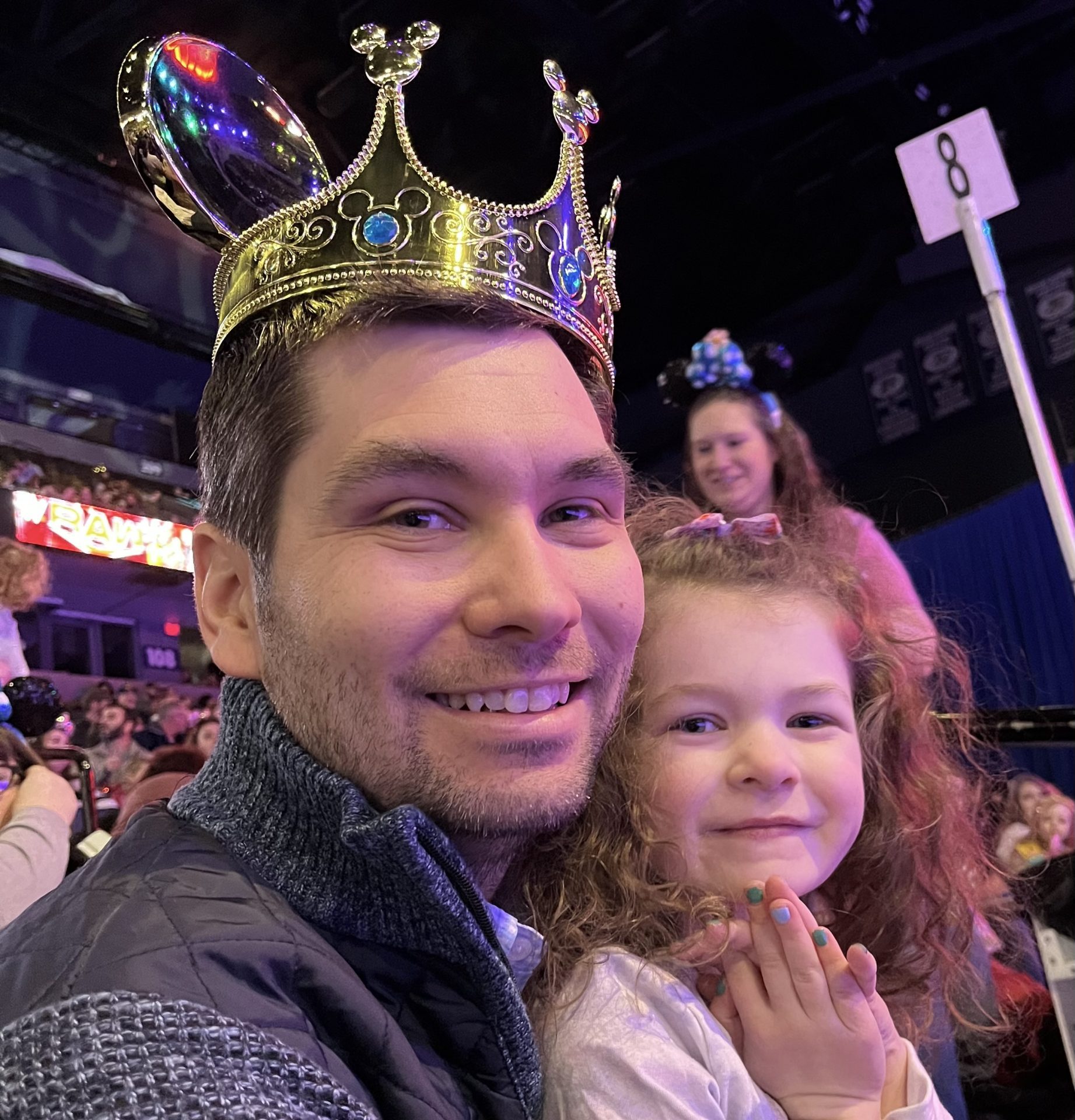“You’re so lucky,” I hear my mother say, almost weekly. She’s referencing my admittedly amazing husband and the support he provides my daughter and me. I love the way my mother and my husband get along. And also that she appreciates and notices how great a father and husband he is. However, when I hear someone tell modern women who have seemingly equal support how lucky we are, I cringe a little bit. It implies that my daughter and I should be overly grateful that my husband makes us a priority. Shouldn’t this level of dedication from dads be the norm?
Before I dive too deep into this topic, I think it’s important to note that I am writing based on my experiences. For this conversation I will be referencing parenting partnerships that are made up of one parent who identifies as a woman and one as a man. I recognize there are many other parenting dynamics but I want to speak from the heart. I also want to acknowledge the privilege I have as a member of a dual-income family. Financial opportunity so often has to do with the luck of where, when, and into what circumstances we were born.
Pushing Beyond the Norms of the Past
Traditionally speaking, as Americans, we’ve not expected equal effort and time from dads in regards to parenting and everyday household tasks. Outdated social norms tell us dads should play the role of “breadwinner,” and moms should maintain the home. As referenced in the book, Unladylike, “Compared to just a third of professional employees and managers fifty years ago, women now make up a slight majority.”
So the norms have shifted, right? Wrong. According to the US Bureau of Labor Statistics in 2016, the “second shift,” or the after-work work done by career moms to keep up the home consisted of 102 hours per year more than their male, father partners. So for the majority of women, even the ones with full-time jobs, most of the work at home is on their plates.
So why do dads who take on equal loads walk through society looking like saviors, saints, or best dads ever? For example, if I take my daughter to Meijer with messy hair and mismatching clothes, I am apt to be judged as neglectful. When my husband takes her grocery shopping with her braids falling out and no coat, he returns home with reports of smiles, winks and “awws” from women of all ages for his hard work as a dad.

There’s More to Balance than Luck
Why does this phenomenon bother me so much? Two reasons really. First, admittedly, it’s because I don’t recall ever hearing my husband’s friends or family tell him he is so lucky to have a partner who fulfills her role as a mother and wife. Second, it’s that word: luck. Dictionary.com’s definition of luck is, “a combination of circumstances, events, etc., operating by chance to bring good or ill to a person.” My problem here is the chance part.
Don’t get me wrong, it was good fortune that years ago my husband and I were set-up by our mutual friends. But it is with trial and error and much intention that we have cultivated our relationship balance and parenting style. He may do more of the “traditionally-female” keeping of the house and the cooking, but I am the master of the schedule, family event planner, and all things experience engineer. The house is clean because of him. We do things like vacation and go to “Disney on Ice” because of me.
We both are comfortable in different lanes, and neither is more important to our family experience. We’ve worked hard to carve out roles within our marriage, our parenting, and our household. It’s not by chance or coincidence that we respect each other’s needs for alone time or pick up the slack when the other one is not on our game. That takes practice and communication, not luck.

How to Involve Dads
You might be asking how I suggest we change this. You know the phrase, “It takes a village,” referring to the amount of support it takes to raise kids? I think it’s going to take a village, heck maybe a country, worth of women and their male partners to change how we talk about partnerships. However, I believe improving upon how we think about the inequity of the load moms tend to carry starts with women.
As peers, when we see a family who has a dad doing drop-offs, sitting at dance class, or being the consummate home chef, try not to tell his partner how lucky she is to have him. Instead, we could congratulate them as a couple for putting in the hard work it must have taken to find such respectful and successful balance in their relationship. Also, if you’re a woman who hears this a lot because we have incredible partners (hand raised), politely remind those complimenting you of that same effort that you and your partner have put into your equity-charged relationship.
And lastly, to members of the generation before mine, who didn’t always have the support you wished you had or the partner you genuinely deserved, I understand why you see women today who have equal partners and think, “They don’t know how lucky they are.” However, I ask you to consider telling a mom near you how lucky this generation of men is to have wives who are ambitious, who strive for more than our predecessors thought were possible, and who show our children everyday what this generation of strong, empowered women look like. Chances are, we look a lot like our mothers.
To deepen your connection as a family, check out our post Five Ways to Prioritize Family Mental Health.










